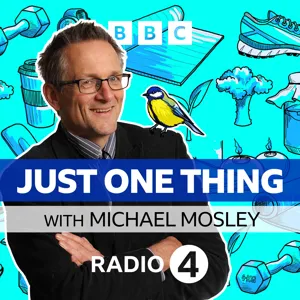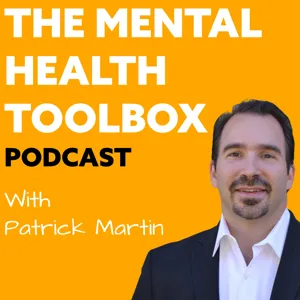Podcast Summary
Singing in a choir can boost mood, reduce anxiety, enhance performance, strengthen immune system, reduce inflammation, and relieve chronic pain.: Singing, even if you think you can't, can improve mood, reduce anxiety, enhance performance, strengthen immune system, reduce inflammation, and relieve chronic pain.
Singing, especially in a choir, can have numerous benefits for mental and physical well-being. According to research, singing can boost mood, reduce anxiety, enhance sporting performance, strengthen the immune system, reduce inflammation, and relieve chronic pain. This doesn't mean you need a perfect voice to reap the benefits – even if you think you can't sing, giving it a try could still have positive effects. So, consider joining a choir or singing loudly for five minutes a day as a simple yet impactful addition to your daily routine. Moreover, BBC World Service encourages listeners to share their thoughts and spread the word about their podcasts. PlushCare offers online access to board-certified physicians who can prescribe weight loss medications for those who qualify, making it easier to start a weight loss journey. Mint Mobile is cutting the price of its unlimited plan from $30 to $15 a month for new customers. And finally, Doctor Michael Mosley's podcast, "Just One Thing," explores various ways to improve health and life through simple actions, such as singing.
Sing for Your Health: Activate Your Reward System and Boost Immunity: Singing for just 5 minutes a day can activate your reward system, boost your immune system, and provide pain relief through the release of dopamine and endorphins
Incorporating singing into your daily routine, whether it's in front of an audience or by yourself, can have numerous health benefits. It's not about being a professional singer, but rather about enjoying the music and singing along for more than 5 minutes a day. Research shows that listening to music can already have positive effects on our mood and physiology, but actively singing along can increase these benefits even further. This is because singing activates the reward network in our brain, releasing feel-good hormones like dopamine and endorphins. Additionally, singing can also boost our immune system and even help with pain relief. So, whether you sing in the shower, with a group, or in front of a mirror, remember that the joy and benefits of singing come first.
Singing leads to improvements in mood, stress reduction, and overall well-being: Singing activates multiple mechanisms, including improved lung function, memory, posture, reduced chronic pain, and loneliness, leading to mood enhancements, stress reduction, and increased self-confidence.
Singing has been found to have profound effects on both mental and physical health. According to Dr. Daisy Fancourt, associate professor of psychology and epidemiology at University College London, singing leads to improvements in mood, reductions in stress, and decreases in stress hormones and inflammation. These benefits are due to the activation of multiple mechanisms, including improvements in lung function, memory, and posture, as well as reductions in chronic pain and loneliness. The psychological benefits include increased self-confidence and cognitive processing. Singing's effectiveness may be due to its long history as a human behavior and its ability to engage multiple systems at once. For example, singing programs have been shown to reduce symptoms of postnatal depression by around 40% in just a few weeks. So, singing is not just a pleasant activity, but a powerful tool for enhancing overall well-being.
Exploring the Healing Power of Singing: Singing offers mental and physical health benefits, fosters group bonding, and can be prescribed for mental health symptoms and chronic conditions. Try singing to improve mood, mental health, and overall well-being.
Singing, an ancient human activity, offers numerous benefits for mental and physical health. From fostering group bonding and communication to providing therapeutic effects in various cultures, singing's intrinsic value is widely recognized. Its components, including music, physical activity, and social interaction, are individually beneficial. Singing could be prescribed as part of social prescribing schemes to improve mental health symptoms like depression, anxiety, and stress, as well as help those with chronic pain or other conditions. Already, clinical commissioning groups in England are referring patients to choirs and arts programs with promising results. Even short singing sessions can yield benefits, and newcomers can join live choirs in their communities or virtual choirs online. Regardless of experience, singing consistently improves mood, mental health, and overall well-being. So, why not give it a try today? Sing your favorite songs, lift your mood, and potentially boost your immune system.
Improve mood, cognition, and productivity with small habits: Having houseplants, access to reliable health insurance, and celebrating life's moments can significantly enhance well-being and positivity.
Incorporating small, meaningful habits into your daily routine, such as having houseplants, can significantly improve your mood, cognition, and productivity. These small changes, like the unexpected conversations on Woman's Hour, can bring joy and positivity to your life. Additionally, preparing for the future is essential, and having access to reliable health insurance, like UnitedHealthcare TriTerm medical plans, can provide peace of mind during uncertain times. Lastly, celebrating life's special moments with loved ones is important, and companies like 1800flowers.com offer high-quality gifts made with care and love to help you do so.






